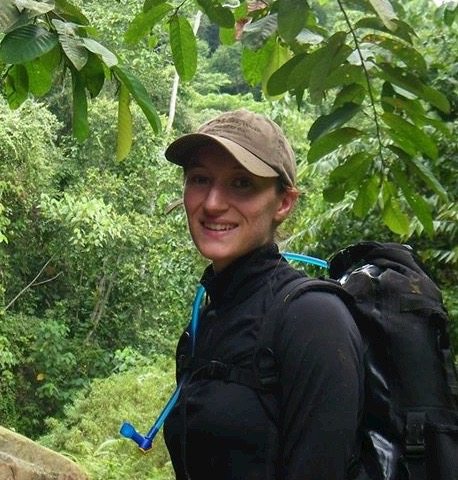Studying conservation biology at the University of the West of England in Bristol, Amy Fitzmaurice then graduated from a Masters in conservation science at Imperial College London. Amy is now one of our DPhil (PhD) researchers from the Wildlife Conservation Research Unit at Oxford University and is currently assessing the interventions put in place in Nepal to reduce human-wildlife conflict with the aim to help tigers, leopards and people. She tells us a bit more about her background and the project, below:
Meet Amy…
“For my Masters, I went to the SAFE Project in Malaysian Borneo, a project where researchers monitor the impact of land conversion from rainforest to palm oil plantations. I conducted baseline social surveys of surrounding communities and logging/palm oil company workers to understand their level of knowledge about wildlife and investigate illegal wildlife trade issues.
“As part of my PhD, I will be working with the Living with Tigers’ team. We are working with local organisations and communities to implement conflict reduction interventions. My project is assessing whether these interventions are successful at reducing human-wildlife conflict. I always wanted to be involved in tiger conservation and the Living with Tigers project is particularly significant because it focuses on the human-felid conflict that is an important current conservation issue.
“As part of this project I will be studying the Bengal tiger and the leopard. Conflicts between humans and wildlife can arise for many reasons and it can often depend on human point of views.

In Nepal, the two main conflicts are leopards predating livestock in communities and humans encountering tigers inside the national park, which can sometimes lead to human injury or death.
“The research looks at both the ecological and sociological sides of the issue. The ecological aspect consists of using camera traps to survey both Bardia and Chitwan National Park’s biodiversity while also collecting signs of animals, such as scats and tracks. The sociological research involves conducting focus groups and semi-structured questionnaire surveys with communities surrounding both National Parks to collect data on the impacts felids have on their lives and will be carried out by Green Governance Nepal, our Nepalese project partners.”
Keep an eye on our blog for more updates from the Living with Tigers project.